- Consistent and mature technology and/or knowledge. This serves as the basis for the creation of the company and must offer a solid structure for its medium-term sustainability and development.
- A multidisciplinary promotion team made up of individuals with scientific knowledge and others with specialised knowledge in business management.
- An effective strategy for the protection of industrial and intellectual property.
- Early detection of market opportunities and the targeting of products and services to those niches.
- Adequate funding sources for each stage of the enterprise.
- A clear demonstration of the corporate viability of the project.
At the end of a research project, the knowledge generated can be used to support a business idea that provides an advantage appreciated by the market and which is sustainable over time.
Once the business idea has been selected, in order to asses its viability, it must be submitted to a more in-depth analysis to evaluate whether or not a business plan can be drafted that addresses the following points:
- Type of business to be created and the sector in which the corporate activity will be carried out.
- Location of the corporation and business activity (country, region, commonwealth, population, etc.).
- Corporate purpose.
- Potential clients.
- Final consumers.
- Location of potential clients and final consumers.
- Sectors to which the potential clients and final consumers belong.
- Specifications of the product or service.
- Needs, habits and motivations of the potential clients.
- Differential advantages.
- Marketing and distribution.
- Expected outcomes.
- Approximate investment.
- Expected profitability.
It is a document that describes the company’s medium-term (3-5 years) viability plan. It documents the company's strategy, objectives and plans.
It includes the marketing plan, financial projections, market research, commercial purpose, key personnel to achieve the objectives and a timetable. It therefore reflects the three dimensions of project viability: technical, commercial and economic-financial.
A business plan lays the foundations for an organisation, specifies what it is looking for and plans out the company’s actions to achieve its objectives. It is the result of the reflection process and an effective instrument that provides visibility of and control over the scenarios, variables and factors that will determine the viability of the company.
Institutional support may take on many forms, for example: temporary leasing of spaces during the incubation phase, the provision of specialised services (support in the drafting of a business plan, in the search for seed capital and venture capital, in intellectual and industrial property issues), the use of infrastructure, and the internal and external recognition and dissemination of the entrepreneurship initiative. These support actions shall have a time limit of 3 years, starting from the moment of the legal incorporation of the company.
The UV requires a preferential relationship between the company and the institution’s research groups through contracts, the use of research services, collaboration in publically funded projects or the incorporation of student or research staff, among others.
Teaching staff, technical personnel, management staff or administrative/services staff (civil servant and permanent contract) and research staff (researchers, technical personnel or individuals who work in research management, administration or in services related to research, development, knowledge transfer and innovation) may become partners, without being members of the management body of such companies, with a shareholding of up to 10% of the company’s share capital. This must be communicated to the university for authorisation.
If the spin-off/KBE is owned by the UV, then members of the UV community may be incorporated into the managing body of such companies and hold more than 10% of the company’s share capital, provided that the university is informed and the member is authorised.
No. Being a partner in a spin-off/KBE does not mean that you can carry out projects within the company free of charge. Law 53/1984 of 26 December on incompatibilities prevents the performance of private activities in companies whose activity is directly related to their public function.
Work could be carried out for the spin-off/KBE if the spin-off/KBE hires university staff through contracts under article 60 of the LOSU.
Yes. Law 53/1984 of 26 December 1984 on the incompatibilities of staff in the service of the public administration establishes limitations on the possibility of exercising public or private activities at the same time as exercising a public function. Specifically, art. 12.1 of the law establishes that, in any case, the following activities may not be carried out by staff falling within the scope of application (including university staff):
(a) Performance of private activities in companies whose activity is directly related to their public function.
(b) Being a member of the administrative body of such enterprises
(c) Holding positions of any kind in concessionary companies, contractors or companies with public sector participation or endorsement
d) Holding a percentage of more than 10% of the share capital of the above companies
In practice, the situations envisaged apply to most university spin-offs/KBEs, so in principle these limits would apply to the staff of the university promoting the initiative.
If you are considered research staff (researchers, technical personnel or individuals who work in research management, administration or in services related to research, development, knowledge transfer and innovation) and you have a part-time employment contract in the spin-off/KBE according to art. 18 of Law 14/2011, of 1 June, on Science, Technology and Innovation (LCTI) and the university also has a stake in the share capital of the spin-off/KBE, then you could be a member of the spin-off/KBE's administrative body and participate in a percentage of more than 10% of the share capital.
If you are considered a civil servant of the teaching staff of the university teaching bodies, full university professor or technical, management and administration and services staff, civil servant or labour staff with a permanent link, who participate in the knowledge-based entities or companies in which the university participates, you may be a member of the administrative body of the spin-off/KBE and participate in a percentage of more than 10% of the share capital, according to art. 61 of the Organic Law 2/2023, of 22 March, on the University System (LOSU).
Yes, if you are considered research staff (researchers, technical personnel or individuals who work in research management, administration or in services related to research, development, knowledge transfer and innovation) according to art. 17 of Law 14/2011, of 1 June, on Science, Technology and Innovation.
Yes, if you are considered a civil servant of the teaching staff of the university teaching bodies, full university professor or technical, management and administration and services staff, civil servant or labour staff with a permanent link who participates in the knowledge-based entities or companies in which the university participates, according to art. 61 of the Organic Law 2/2023, of 22 March, on the University System.
Yes, if you are considered research staff (researchers, technical personnel or individuals who work in research management, administration or in services related to research, development, knowledge transfer and innovation) according to art. 18 of Law 14/2011, of 1 June, on Science, Technology and Innovation. In this case, and if the university participates in the share capital of the spin-off/KBE, the incompatibilities are lifted, making it possible to be a member of the administrative body of the spin-off/KBE and to participate in a percentage of more than 10% of the share capital.
The UV participates in different calls focused on Teaching and Research Staff entrepreneurship, among others:
1) Llamp Techtransfer RUVID call is an initiative promoted by the Directorate General for Entrepreneurship and Cooperativism of the Generalitat Valenciana implemented by the Network of Valencian Universities, among other institutions, for the promotion of R+D+I (RUVID). This is a programme aimed at facilitating the creation, growth and consolidation of knowledge-based business initiatives that have a positive impact on the environment and contribute to the development of an innovation-oriented production model.
The call offers support and mentoring services to projects from universities and the CSIC in the Valencian Community and deploys actions to promote the culture of scientific entrepreneurship, specifically:
A. The support and mentoring services include:
• Personalised mentoring sessions according to the needs and the development stage of the projects in the following areas, among others:
- Product (value proposal)/Market
- Regulatory.
- Financing strategy.
- Team building.
- Legal (corporate structure, IPR).
- Communication and marketing (one pager, pitch, deck, social media, etc.).
• Coaching sessions for preparing an investor pitch.
• Connecting with the investment ecosystem.
B. The support of entrepreneurship culture includes:
• Workshops on scientific entrepreneurship
• Webinars on professional tools for entrepreneurs
2) Llamp Techtransfer I2CV - Startup València is a new call that includes an acceleration programme for the selection and promotion of talent and technologies that best apply to the priority and strategic areas defined by the General Directorate of Entrepreneurship of the Generalitat Valenciana, aimed at the university communities of the Valencian public universities.
The Llamp Techtransfer I2CV call offers the following services and actions:
- Mentoring: training and specialised mentoring with the aim of maturing the value proposal of each project, including (i) specialised training, (ii) personalised mentoring, (iii) technology coaching and (iv) conferences and meetings.
- Development and validation of the business model and business plan.
- Communication services: promoting a communication channel between the project and the market in order to achieve maximum exposure and positioning.
- Training: throughout the programme, the project will receive specific training adapted to its needs in the main areas of business, on a case-by-case basis, including legal, finances, strategy, sales, product, technology and marketing.
- Ecosystem of the Promoters: they may be invited to various acts, congresses or events in which any of the Promoters participate.
- Demo Day: in which selected projects will be presented to the market, acting as a direct meeting point with investors and managers of the main financing vehicles.
- Other acceleration services.
- TRAINING PARTNERSHIP WITH SENIORS (EcM)
Non-profit organisation whose main functions are the development of physical activity and personalised training programmes for special populations according to the specific needs of each population, among other activities such as meetings and discussions on the benefits of regular physical activity, group classes or workshops.
- MATTECO TEAM S.L.
Trading company whose corporate purpose includes the development and marketing of products, processes and services associated with the use of laminar materials for industrial application.
- SIMODAR TRAINING SOLUTIONS S.L.
Innovative technology-based company promoted by the UV that focuses on the development and marketing of products and services for simulation-based operator training systems, using the technologies described in the second section. It is based on the development of software models for the simulation of real working environments, aimed at the simulation of public works machinery.
- OPTICALSENS, S.L.





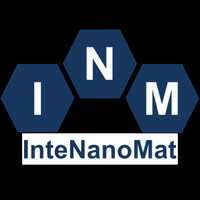


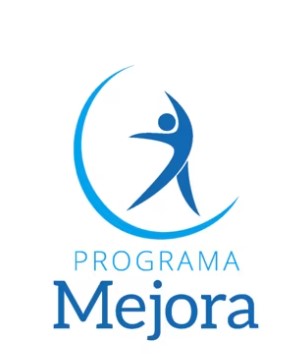


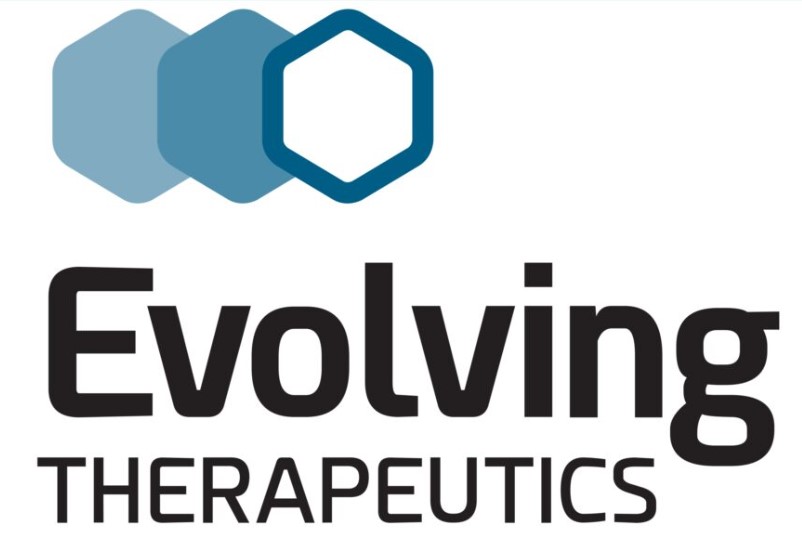

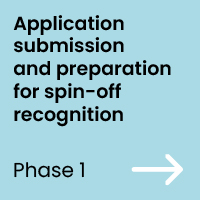
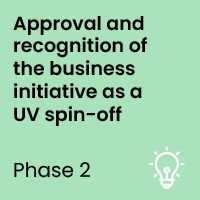
.jpg)
.jpg)
.jpg)
.jpg)
.jpg)
.jpg)










